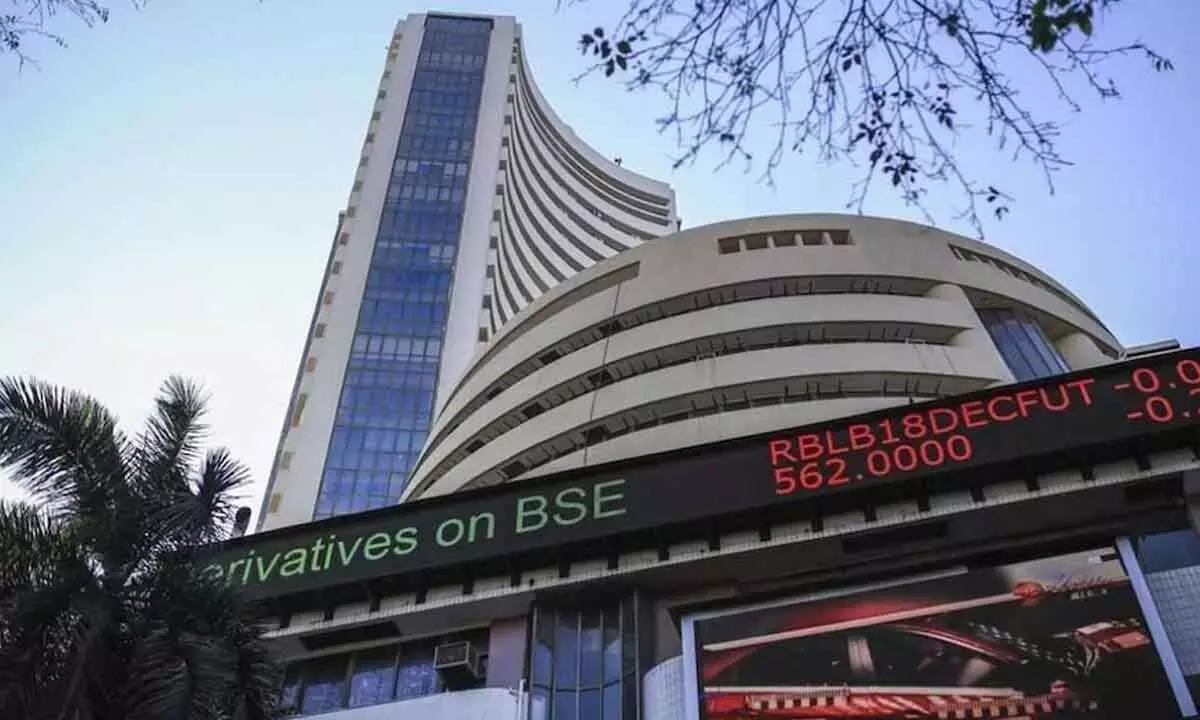Dalal Street opens last in Asia-Pacific markets: Key indicators to take advantage
The Bombay Stock Exchange (BSE) opens last among Asia-Pacific markets, and understanding key indicators is crucial for anticipating market movements.
image for illustrative purpose

The Bombay Stock Exchange (BSE) opens last among Asia-Pacific markets, and understanding key indicators is crucial for anticipating market movements. In this analysis, we explore the factors influencing BSE's opening and highlight key indicators investors should watch for insights into market dynamics.
Global Market Sentiment: Assessing the overnight performance of major global markets, especially in the Asia-Pacific region, can set the tone for BSE's opening. Factors such as international economic data, geopolitical events, and trends in commodity prices contribute to global market sentiment.
US and European Market Closures: Consideration of the closing trends in major US and European markets, which precede the BSE opening, provides valuable insights. Any significant developments or fluctuations in these markets may impact investor sentiment globally.
Currency Movements: Monitoring currency movements, particularly the Indian Rupee against major currencies, helps gauge the impact of forex trends on the BSE. Currency fluctuations can influence export-import dynamics and corporate earnings.
Commodity Prices: Given India's dependence on commodities, tracking the prices of key commodities like oil, gold, and metals can provide clues about the impact on sectors such as energy, manufacturing, and mining.
Domestic Economic Indicators: Keeping an eye on domestic economic indicators, including GDP growth, inflation rates, and industrial production, helps assess the overall health of the Indian economy and its potential impact on the BSE.
Sector-Specific News: Monitoring sector-specific news and developments can offer insights into the performance of industries listed on the BSE. Changes in regulations, technological advancements, or geopolitical events affecting specific sectors can influence market dynamics.
Corporate Earnings Reports: The release of corporate earnings reports, both domestic and international, can significantly impact market sentiment. Investors often react to the financial performance of key companies, influencing stock prices and market trends.
As the BSE opens last in the Asia-Pacific market, a comprehensive understanding of these key indicators can assist investors in making informed decisions. Regular monitoring of global, regional, and domestic factors provides a holistic view of market conditions, helping investors navigate the dynamic landscape of the stock market.
North American Stock Exchange Timings:
Key stock exchanges in North America include the New York Stock Exchange (NYSE), Nasdaq, and the Toronto Stock Exchange. The NYSE, established in 1792, is the world's largest stock exchange. The stock exchange timings for major North American exchanges in IST are as follows:
NASDAQ: 7:00 PM to 1:30 AM
NYSE: 7:00 PM to 1:30 AM
TMX Group (Canada): 8:00 PM to 2:30 AM
European Stock Exchange Timings:
Europe, the birthplace of stock exchanges, hosts major markets such as the London Stock Exchange, Euronext, Deutsche Borse, SIX Swiss Exchange, and BME Spanish Exchange. Their opening and closing times in IST are as follows:
London Stock Exchange (UK): 1:30 PM to 10:00 PM
Euronext (European Union): 12:30 PM to 9:00 PM
Deutsche Borse (Germany): 12:30 PM to 2:30 AM
SIX Swiss Exchange (Switzerland): 1:30 PM to 10:00 PM
BME Spanish Exchange (Spain): 1:30 PM to 10:00 PM
Asia-Pacific Stock Exchange Timings:
Asia-Pacific hosts five of the world's top ten largest exchanges, including Shanghai Stock Exchange, Hong Kong Stock Exchange, and Japan Exchange Group. IST timings for key exchanges are:
Australian Securities Exchange (Australia): 5:30 AM to 11:30 AM
Japan Exchange Group (Japan): 5:30 AM to 11:30 AM
Hong Kong Stock Exchange (Hong Kong): 6:45 AM to 1:30 PM
Shanghai Stock Exchange (China): 7:00 AM to 12:30 PM
Shenzhen Stock Exchange (China): 7:00 AM to 12:30 PM
Taiwan Stock Exchange (Taiwan): 6:30 AM to 11:00 AM
KRX Korean Exchange (South Korea): 5:30 AM to 11:30 AM
NSE and BSE (India): 9:15 AM to 3:30 PM
In Closing:
For traders and investors participating in multiple exchanges, tracking global market timings is crucial. Understanding foreign market indices' performance provides valuable insights, as events in one region can impact markets worldwide. Keeping abreast of global market trends enhances informed decision-making in the dynamic world of stock trading.

